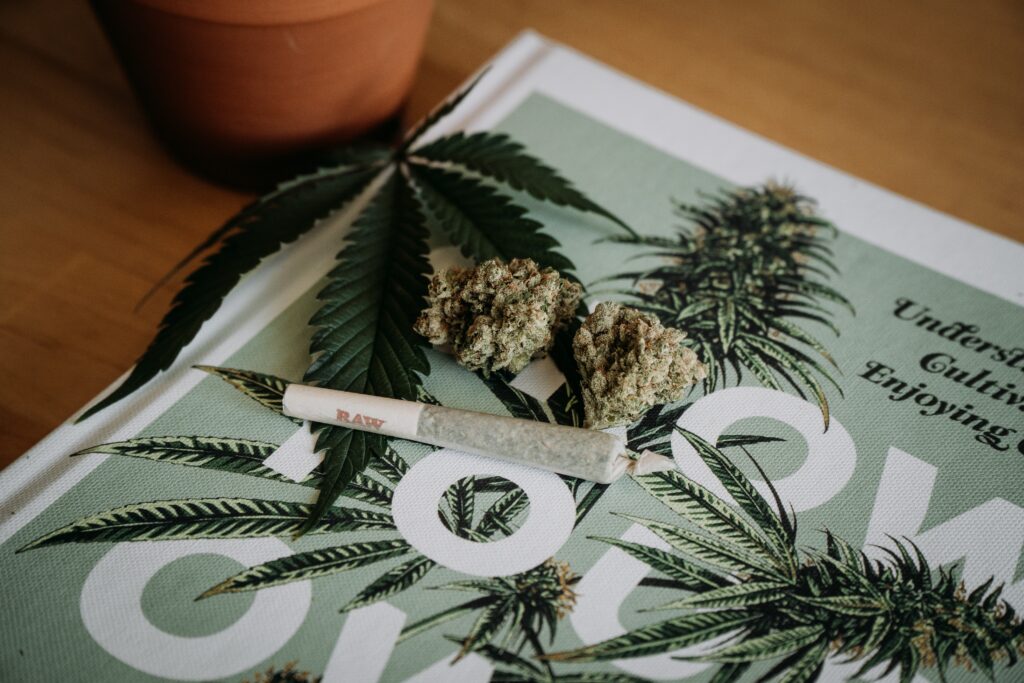A recent poll revealed that nearly 80% of parents know little to nothing about cannabidiol (CBD). With over a third believing it to be the same as marijuana.
While CBD does come from the cannabis plant, its chemical structure makes it completely different from the psychoactivity found in most marijuana products.
Throughout this article, we’re going to identify the differences between CBD and marijuana. From there, we’ll give further information on the legality of CBD and other cannabis products.
What is CBD?
Cannabidiol (CBD) is a phytocannabinoid (chemical compound) found within the cannabis plant. There are over 100 phytocannabinoids within cannabis, with the most popular being tetrahydrocannabinol (THC).
However, doesn’t interact with the brain and body in the same manner that THC does. Most notably, it doesn’t induce psychoactivity (or a “high”).
Researchers still aren’t 100% sure how CBD interacts with the body. But we do know it influences our endocannabinoid system (ECS) to become more balanced.
Our ECS is a complex nerve cell signaling system that’s responsible for a variety of daily functions, including our appetite, mood, pain, sleep, and even female fertility. In order to promote these functions, our ECS must produce endogenous cannabinoids (also known simply as endocannabinoids).
These endocannabinoids have a very similar chemical structure to phytocannabinoids found in cannabis. And the way our body interacts with both cannabinoids is largely the same – they attach themselves to cannabinoid receptors (CB1 and CB2) and are broken down by enzymes.
Again, we don’t 100% know how CBD works with our ECS. However, it’s theorized that CBD allows our ECS to return our body to a state of homeostasis. This is why there are such versatile reports of the medical benefits CBD has.
What is Marijuana?
When people refer to marijuana, they’re often referring to THC. As mentioned, this is another phytocannabinoid found in cannabis – the most abundant with CBD being a close second.
The largest difference between CBD and THC is the fact that THC causes the psychoactivity (or the “high”) often associated with marijuana.
The reason THC does this is that it binds directly to our CB1 receptors and activates our brain’s reward system. This system is responsible for a number of pleasurable feelings, including eating and sex.
When activated by high THC concentrations within the blood, it releases a surge of dopamine within our brains. Dopamine is a signaling chemical that produces rewarding stimuli.
In turn, this surge of dopamine can have a wide variety of effects (both positive and negative) and the psychoactivity discussed above.
Key Differences Between CBD and Marijuana
Due to the differences in interaction with our ECS, both CBD and THC have been found to have varying potentials in medicine. For example, THC seems to be better at reducing chronic pain whereas CBD is more suitable for decreasing anxiety.
Still, more research is necessary before we can properly understand how these phytocannabinoids can have medicinal benefits. As of this time, what we know is CBD will:
- Create relaxation within the user
- Ease certain medical conditions
- Help to balance our ECS
- Not cause psychoactivity (or a “high”)
- Produce mild to no side effects
On the other hand, THC will:
- Attach itself to CB1 receptors
- Create euphoria within the user
- Develop negative side effects (such as paranoia or psychosis)
- Ease certain medical conditions
- Produce psychoactivity (or a “high”)
If you’re looking to use cannabis as a medicine to help with a specific health condition, we highly recommend you research the studies and information we currently have surrounding that condition. While it’s likely cannabis (and its cannabinoids) can help, there are certain situations where neither THC nor CBD is applicable.
Legality Differences within CBD and THC
As of this time, THC remains illegal on a federal level. Some states have legalized recreational use of all cannabis products (essentially making THC legal) and even more have legalized medicinal use.
However, laws are greatly different from state to state in terms of how much you’re allowed to have, grow, or purchase. We highly recommend looking into your state’s laws in order to get a better idea of what THC legality means to you.
On the flip side, CBD and hemp were federally legalized through the 2018 Farm Bill. This makes most CBD products currently available legal throughout the country, but there are some things to keep in mind.
Firstly, CBD is only federally legal if it’s extracted from the hemp plant. Hemp is essentially cannabis with the only difference being it contains less than 0.3% THC within it.
Secondly, states are allowed to make laws surrounding CBD production and sales. This means there may be limitations on CBD in your state. We recommend doing some research into this to ensure you’re allowed to purchase CBD where you are.
Finally, in states where cannabis is medicinally or recreationally legalized, you may come across marijuana-derived CBD. This is essentially the same CBD as you’ll find in the federal market, but it may contain higher concentrations of THC.
Final Word
CBD and THC are not the same. While they both come from the same plant, their chemical structure and interactions with the human body are very different. Not to mention, one remains federally illegal while the other was legalized across the nation.
If you’re new to cannabis and looking for the right product, it’s key to do your research. Both the CBD and state-by-state THC industries are not regulated by the Food & Drug Administration (FDA) which has allowed for low-quality products to hit store shelves.
There are a number of ways to identify what is a high-quality cannabis product, including whether or not it holds a Certificate of Analysis (CoA) or the company is transparent about manufacturing processes.

